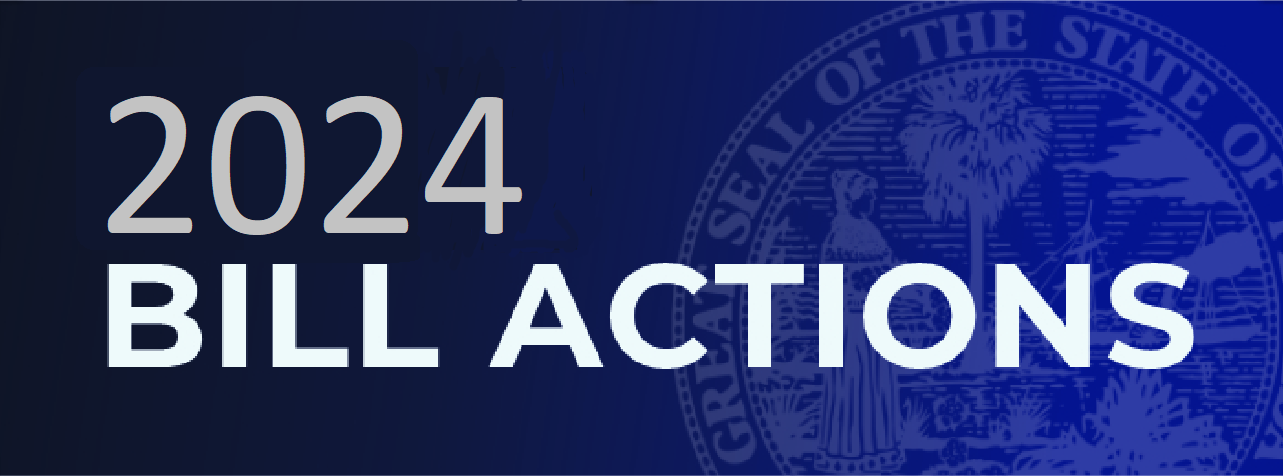Funding will go to programs that prevent and treat substance abuse, including the CORE Network, and establish the Office of Opioid Recovery
DESTIN, Fla. — Governor Ron DeSantis was joined by First Lady Casey DeSantis to announce plans for the $205.7 million from the Opioid Settlement Agreement. These funds will establish the Office of Opioid Recovery, within the Department of Children and Families, to oversee treatment and recovery efforts statewide. Through cross-agency collaboration and community partnerships, Florida’s plan to use these funds is focused on implementing strategies and expanding programs that effectively serve Florida communities through evidence-based practices, including the CORE Network. For more information, click here. To watch the full press conference, click here.
“We want to stop illicit drugs from entering our state, hold dealers accountable, educate Floridians on the dangers and provide treatment that breaks the addiction cycle,” said Governor Ron DeSantis. “Opioid addiction is plaguing our state and nation, and we are seeing more fatalities related to overdose than ever before with fentanyl being trafficked through the southern border. We will use funds from the opioid settlement in the most efficient and effective way possible to end addiction in Florida.”
“The urgency to combat substance abuse is only escalating – we are no longer talking about the drugs from ten years ago, and the key to protecting our children is prevention,” said First Lady Casey DeSantis. “Through The Facts. Your Future., materials like what was shown today, and improved substance abuse prevention instruction in schools, students are educated to make decisions that protect their health and see, with their own eyes, the dangerous impact of illicit drug use. In Florida, we are equipping students with the tools they need to overcome challenges and withstand peer pressure to say no to drug use.”
To combat the opioid crisis by efficiently meeting the needs of Floridians and educating our communities on the dangers of substance abuse, funding will be dedicated to:
- Establishing the Office of Opioid Recovery – $10.2 Million
- Improving access to treatment and recovery services – $92.5 Million
- Developing educational prevention materials – $39.4 Million
- Expanding the CORE Network – $26.8 Million
- Expanding recovery and peer support services – $25.3 Million
- Pioneering an integrated statewide database – $11.3 Million
Florida’s state agencies have implemented recovery and treatment programs that are the first of their kind in the nation and disrupt the traditional addiction cycle for Floridians to live a sustainable, drug-free life. In Florida, individuals struggling with substance abuse will have access to continuous care. The state is also working to eliminate the stigma of addiction and treatment, starting with the substance abuse curriculum in schools.
At the event, First Lady DeSantis premiered a clip from the videos that have been created for high school The Facts. Your Future. school assemblies. To watch the clip, click here.
In August, Governor DeSantis announced the expansion of the Coordinated Opioid Recovery (CORE) Network to 12 counties after a successful pilot. Following the expansion announcement, state agency leaders visited facilities in all partnered counties to see the connected care model at work. With the Opioid Settlement Agreement funding, the CORE Network will be expanded to an additional 17 counties. Floridians can get more information on the Network and find organizations in their area to seek care at the recently launched webpage flcorenetwork.com.
For communities in hard-to-reach and rural areas in Florida, Opioid Settlement Funds will be used to pilot a program with up to five on-demand mobile treatment teams offering medication-assisted treatment. These mobile teams will provide on-site assessments, recovery support services, and medications for substance abuse. Additionally, 186,000 naloxone kits will be distributed to hospitals, county health departments, and community behavioral health settings to plan for naloxone saturation needs.
“We are fortunate to have Governor and First Lady DeSantis as relentless advocates for the people of Florida. They not only recognize the magnitude of the opioid epidemic, they have deployed an aggressive multi-prong approach to address it,” said Department of Children and Families Secretary Shevaun Harris. “The Department takes our responsibility seriously to provide high-quality addiction and substance use treatment through our network of community-based providers. As a result of this settlement, we will be able to increase life-saving prevention, treatment and recovery services for Floridians struggling with a substance use disorder.”
“Continued legislative and financial support for the expansion of CORE in more counties will ensure integrated, sustainable access to evidence-based emergency and lifelong care for all Floridians struggling with opioid use disorder,” said Statewide Director of Opioid Recovery Dr. Courtney Phillips. “This access will continue to save lives, save families, and serve as a solution to this complex epidemic that has ravaged our communities.”
“Substance use disorder continues to take lives across the country,” said Department of Health Deputy Secretary for Health Dr. Kenneth Scheppke. “These critical investments under the leadership of Governor DeSantis and the First Lady will implement multi-faceted action for innovative prevention, evidence-based treatment, and recovery. Expanding the CORE Network to 17 additional counties is a clear commitment that Florida will directly combat the opioid epidemic and save lives.”
“As your CFO & State Fire Marshal, I have the honor of serving alongside our amazing firefighters and first responders throughout our state,” said CFO Jimmy Patronis. “These heroes see the tragedies associated with the opioid epidemic and the impacts of drug abuse in our communities on a daily basis. Thankfully in Florida, Governor Ron DeSantis and First Lady Casey DeSantis have worked to turn our state into a national model of how to effectively combat the opioid crisis and help save lives in Florida.”
Florida is developing and implementing wrap-around services for Floridians struggling with overdose and developing educational materials to prevent kids from encountering and interacting with illicit drugs with fatal effects. If someone is having an overdose, the first step is to call or text 911. To seek treatment for yourself or someone currently struggling with addiction, visit the CORE Webpage.
###
.jpg)






.jpg)
